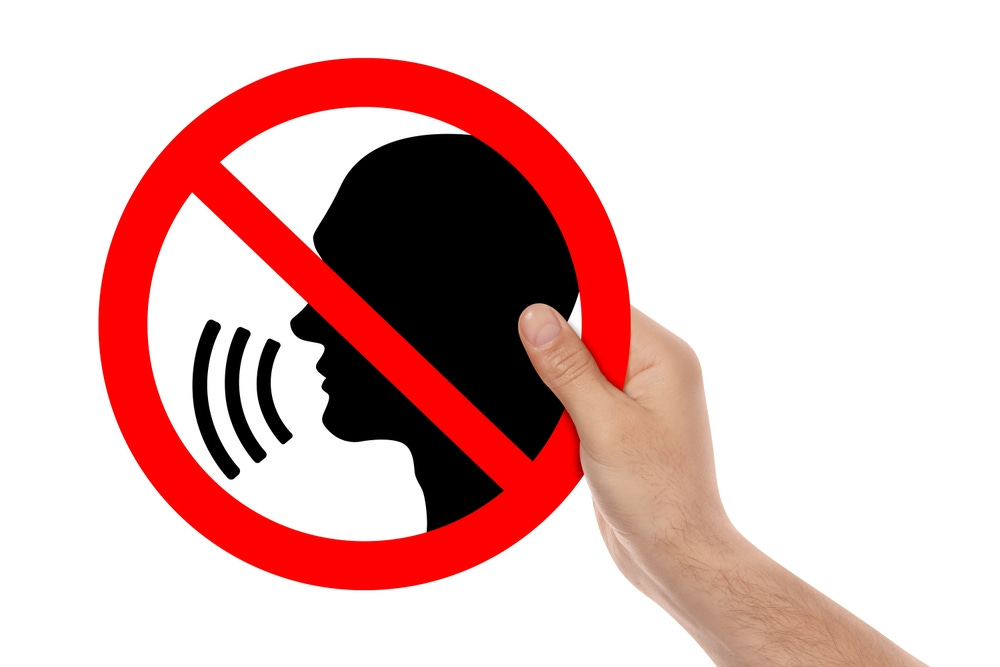E-Pluribus | March 2, 2023
Censorship by any other name; "antiracism" isn't; and the re-cancellation of a Canadian professor.
A round-up of the latest and best writing and musings on the rise of illiberalism in the public discourse:
Oliver Traldi: A Conspiracy Theory of Connotations
A whole industry has grown up around the policing of language. Oliver Traldi writes at Quillette about the attitude that so often seems to say, “We know what you said, but what you really meant was…”
“Wokeness” is an inchoate phenomenon. It may be that, as critics of its pejorative use allege, it is too difficult to define to be of any analytical use. But surely this backwards understanding of language, not to mention the strident and apparently arbitrary way in which it is policed, is central to what bothers people about contemporary progressive activism. The notion that our minds are somehow vulnerable to subliminal psychic attack by malevolent political forces seems to do violence to common sense and experience.
[ . . . ]
Some academics even want politics to be conducted by explicitly redefining words to fit political preconceptions. One of the most prominent redefiners is recent MacArthur Genius Grant recipient Ibram X. Kendi, who has devoted considerable energy to popularising a more expansive definition of the word “racism.” If the conspiracy theory of language fails to convince us that words are capable of harming people, potential harm can still be alleged because the meanings of words that describe harm have become excessively broad.
Against this strategy stands a conviction that the world comes first, and then our feelings about it, and that our language only follows after. The dispute about language is therefore a dispute about the direction of causation. The new censoriousness is informed by the idea that our problems begin with language, which determines how people feel about things, which in turn determines behavior and outcomes.
A characteristic example of this tendency is the introduction of euphemisms to replace negatively-charged language. But this can result in what Steven Pinker has called a “euphemism treadmill,” as formerly neutral terms acquire negative connotations and have to be replaced until they become tainted and have to be replaced in their turn, and so on and so forth. In a 1994 New York Times article, Pinker wrote that this process “shows that concepts, not words, are in charge: give a concept a new name, and the name becomes colored by the concept; the concept does not become freshened by the name.”
Read it all here.
Vincent Lloyd: What Happens When “Antiracism” Goes Wrong
On his The Good Fight podcast at Persuasion, Yascha Mounk recently hosted Vincent Lloyd, author of a February 2023 Compact Magazine piece entitled “A Black Professor Trapped in Anti-Racist Hell.” Below are some excerpts from a transcript of their conversation in which Mounk and Lloyd discuss empathy and identity, personal and group, and how these affect our ability to communicate with each other.
Mounk: I've been thinking a lot about what's often called standpoint epistemology or standpoint theory; that how we experience the world depends in some crucial ways on who we are, and so that requires us to have some amount of empathy for our fellow citizens and to realize that when they're telling us something that makes us uncomfortable or that might seem wrong or isn't in line with our own experiences, we should take the time to actually listen to them and to have an open mind. Perhaps they have a piece of information here that I don't have, and if I care about living in a just society, I should take that seriously.
Well, those assumptions really don't hold up in the philosophical sense, as there's a whole set of assumptions you have to make about all of the members of a certain group having a certain set of experiences, and while you may never be able to experience exactly what it feels like, you may well be able to communicate the things that are politically relevant. I think it's a really weak basis for political solidarity.
Lloyd: If I could just add a little bit here, I think you're nicely naming these issues, but I think they're even more complicated. As human beings, we're never going to fully understand each other. And there is some gap that will always remain between what we can appreciate, even when we listen really, really carefully, and the experiences of others. That gap is about our humanity and the cultural formations that we've had. Appreciating that tragic sensibility—that we're never going to fully understand, even as we're trying—requires some humility, right? We're going to try and fail, and then we have to adjust what we're trying to do. And it's not just about the pieces of information that we might not be getting, but it might even be about our own habits and our own styles of reasoning that have been shaped by the people we've been around, the cultures that we've been formed in, that block us from encountering information or experiences unlike ours.
Again, while this all seems right to me, it’s very tricky to navigate. And in the seminar, after this new culture of deferral to experiences of discrimination and other new cultures (developed in the wake of Black Lives Matter and other political protests that have been doing hugely important work to shed light on instances of injustice), the students were resistant to ask critical questions about texts if those texts were seen to be expressing the experiences of the author. If it's Angela Davis talking about her experience in prison, we couldn't ask critical questions about that. If it's Christina Sharpe, a Black Studies theorist, describing how the afterlives of slavery affect her family, we couldn't ask critical questions about that. At least, when we tried to encourage that in the seminar space, there was a bloc of students who said that they were being harmed by the open discussion.
Read the whole thing.
Mark Mercer: Frances Widdowson Was Canceled Again. Was It Justified?
In May 2022, we featured an essay by Frances Widdowson regarding her experiences at Mount Royal University in Canada, where she had filed a wrongful dismissal lawsuit. Now, reports Mark Mercer at Minding the Campus, ironically enough the University of Lethbridge cancelled a talk Widdowson was scheduled to give entitled “How ‘Woke-ism’ Threatens Academic Freedom.”
President Mahon’s cancellation of the talk raises many serious questions about Lethbridge’s stated commitment to freedom of expression on campus and to the academic freedom of its professors, who should, one might think, enjoy equal access to university resources, a right President Mahon denied Dr. Viminitz. It also raises questions about the quality of Lethbridge’s professors, so many of whom agitated for cancellation and so few of whom defended academic values or the academic mission of their institution.
But here, I wish to consider President Mahon’s reasons for canceling Widdowson’s talk. Of course, even if they had been good reasons, it’s hard to imagine that they would have been weighty enough to tip the balance against academic freedom and open discussion. President Mahon, for his part, didn’t think to explain how the reasons on which he acted were better than the reasons for permitting the talk that he gave earlier. Comparative judgement aside, though, were President Mahon’s reasons for canceling the talk good reasons, simply on their own terms?
[ . . . ]
The references to safety can, I think, be interpreted as a call to protect emotional wellbeing. The references to harm, then, are to emotional pain and debilitation. President Mahon’s suggestion is that for some people, hearing ideas that they take to denigrate things that matter to them, in this case their identity and commitments as indigenous people, can be painful and debilitating.
Further, if central to one’s own identity is care for the emotional wellbeing of others, then believing that others are hearing things painful and debilitating to them can be painful and debilitating to one. Since Widdowson’s views are taken by many members of the Lethbridge community to denigrate things that matter to them, either directly or through care for others, her speaking them will cause emotional harm, or so I understand President Mahon’s thinking. (Or he might be saying that refraining from canceling her talk could cause emotional harm.)
Read it all.
Around Twitter
John Sailer with DEI at the NIH:
Matt Yglesias examines the phenomenon of youth depression - Robert Pondiscio and Frank Fleming weigh in:
And finally, Hersheys Canada goes seriously woke for International Women’s Day:












